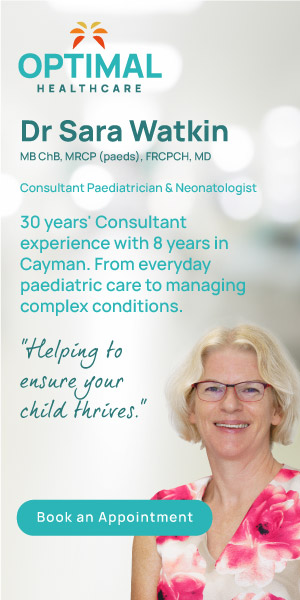Choosing an OBGYN (Obstetrician) is quite similar to choosing a family doctor in that you are going to enjoy what might be a 9-month relationship with them and you want to be able to trust their advice and feel comfortable discussing all of the health-related matters that Pregnancy involves. However, there are more considerations too, some of them related to specific expertise, and some of them far more practical.
Given the ongoing relationship and the importance of your pregnancy or coming pregnancy, it’s not a decision taken lightly and many parents-to-be find it quite stressful. Consequently, I hope this small guide will take some of the stress out of the decision and provide some useful considerations.
Most Important Advice – Meet Them!
It’s difficult to choose a relationship on paper or screen, so go meet a potential list of OBGYNs. You’ll get far more of a feel for which one is right for you when you are face-to-face and you’ll be able to ask them a series of questions to be a bit more objective than ‘I like them’ (but liking them is important too).
You should probably ask other Mums and Dads too but when doing so, remember that they are different people with different requirements e.g. first versus subsequent births, risk factors, prior complications etc. However, it’s an excellent way of finding out things like:
- How accessible where they?
- Did they respect your birth plan wishes?
- Did you feel reassured by their care and advice?
Important Considerations When Choosing an OBGYN
The following are a range of issues that need considering in your choice of OBGYN.
Gender Preferences
There is no right or wrong in this but different people have different views. Some Mums want an OBGYN that they like and trust irrespective of gender and some are more inclined to want a female OBGYN just because of their comfort with the more intimate aspects of the pregnancy journey. We are privileged in the Cayman Islands to have choice and so if you are happy with a male or female OBGYN then go see all of the ones that seem to suit. If you have a preference, then just limit your selection accordingly. It’s your pregnancy and your choice when choosing an OBGYN.
Team Versus Single-Doctor Practise
Delivery is an imprecise process, defined more by nature than the OBGYN. The most an OBGYN can tell you is that they don’t expect to be away or off-island on your estimated date of delivery. But even term babies can arrive any time across a 4-week spread and of course there’s always the possibility of a preterm delivery too. And everybody has to travel or be unavailable at some point, even if its for sickness, a boat trip to Kaibo or a more extended holiday.
Single-doctor practices tend to hand over care either to the Government obstetricians or midwives in George Town Hospital or to other private OBGYNs, whereas a practice with multiple OBGYNs tend to handle cover within the practice.
Are You Worried about Complications
The majority of pregnancies are straight-forward and some, around 10% according to studies conducted by the highly reputable Johns Hopkins University, have complications with the potential to cause harm to Mum or baby. If you know you are at risk of complications e.g. because you have had them in a previous pregnancy, or simply worried they might occur e.g. because this is your first pregnancy and you don’t have a history to guide you, then you might want to consider a team that has additional expertise in-house. That expertise can take two forms, or indeed both:
- Access to accredited fetal-maternal medicine (manages complications and complex cases)
- Access to accredited neonatal care (manages preterm births and birth issues from the baby’s perspective)
High Risk Pregnancies
Pregnancies can be higher risk because of underlying health reasons such as diabetes, lifestyle factors such as age at pregnancy or weight, genetic reasons, as well as previous issues with a pregnancy or prior miscarriage. These pregnancies need careful management from beginning to end, including sometimes needing more complex birth planning between the OBGYN and neonatal team because of the risk of complications. Sometimes it is your OBGYN that will determine whether your pregnancy is higher risk and sometimes you will already know what a higher risk pregnancy is.
Most practices will claim to manage high risk pregnancies, based on the fact that all OBGYNs will have managed or found themselves with high-risk pregnancies across their years of experience. To understand the difference between experience of and a service specifically for high-risk pregnancies, it is useful to understand how one might be managed in other developed jurisdictions like the UK or USA. Typically, these would:
- Assign you to a specific high-risk service or OBGYN
- Higher risk pregnancies are often managed by tertiary-level OBGYNs
- Involve fetal-maternal medicine, depending on what makes your pregnancy higher risk
- Ensure you have a heightened regime of monitoring or early warning signs to watch for
- Plan your later pregnancy and delivery in conjunction with the neonatal team, including the timing and being ready for any potential complications
- Engage in specific counselling for certain conditions or abnormalities
You can always ask your potential OBGYNs how they handle this and which aspects of this they have access to.
Convenience Issues
Lastly, convenience is an issue too. Many people lead busy lives throughout their pregnancy and for some that means holding down senior, demanding jobs too, sometimes almost up to delivery. Convenience is a real consideration.
- Is it easy to park? (this becomes more important the more pregnancy progresses)
- Can you book and schedule online?
- Is there say a midwife available if you have questions outside of your scheduled appointments?
- Does the practice run efficiently to avoid waits?
These are all aspects of a practice that you can pick up from comments and research. It’s an important decision and so it is worth the time spent at the beginning.
Other Possible Questions
The following are additional questions you could consider when meeting and choosing an OBGYN or visiting their practice.
About the Doctor and their Care
- How long have you been in practice (and at what level)?
- How long does a typical consultation last?
- What are the normal office or clinic hours?
- How are emergencies handled?
About the Clinic and Waiting
- Is the waiting area clean (and private if that’s important to you)?
- Are the staff friendly and helpful?
- Do other patients seem to be waiting for a long time?
About Your Cover and Referrals
- Does the practice accept your insurance?
- Does it accept a variety of plans in case your coverage changes?
- Is a payment plan possible if you are not covered?
- Did they ensure you fully understood how they charge for pregnancy?
- What hospital affiliations and admitting rights does the team have?
- Does your insurance cover services there too?
More Advice on Choosing an OBGYN
It’s also worth checking out help, advice, and any choosing an OBGYN posts in our Baby Facebook Group. It allows you to ask questions, gain access to basic advice and share experiences with others facing the same new experiences. You can join here: https://www.facebook.com/groups/babycayman/


